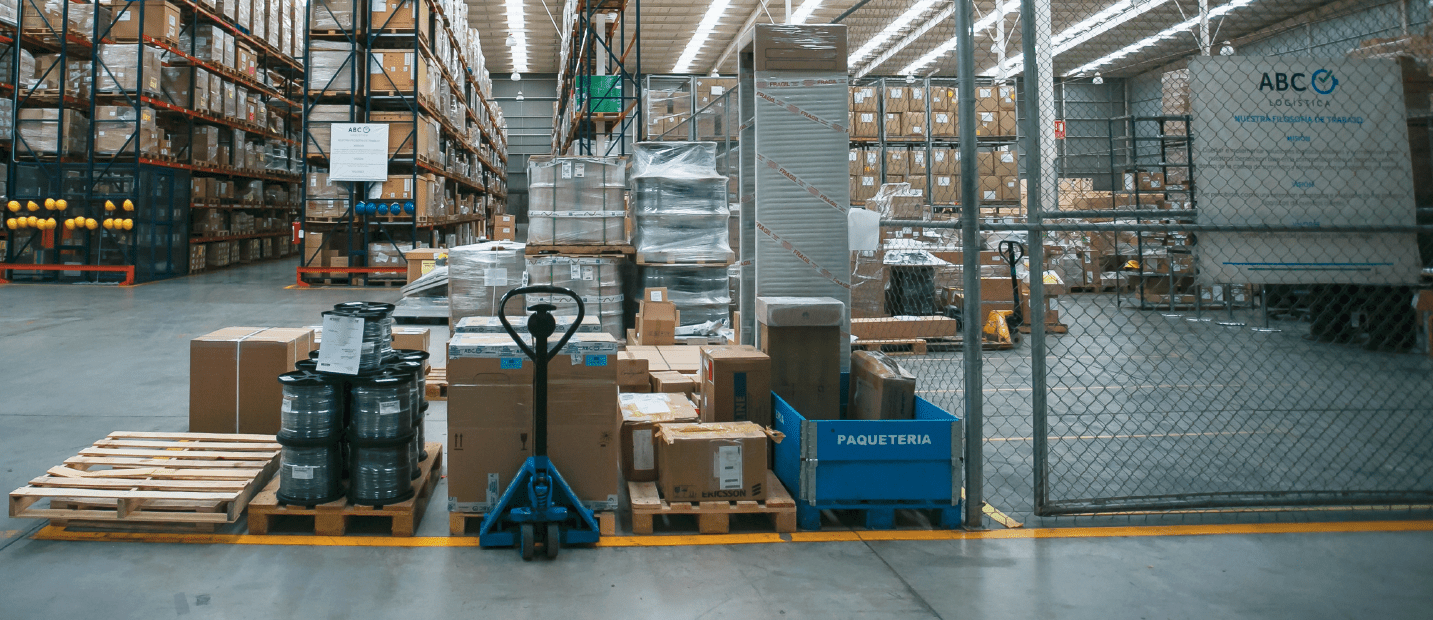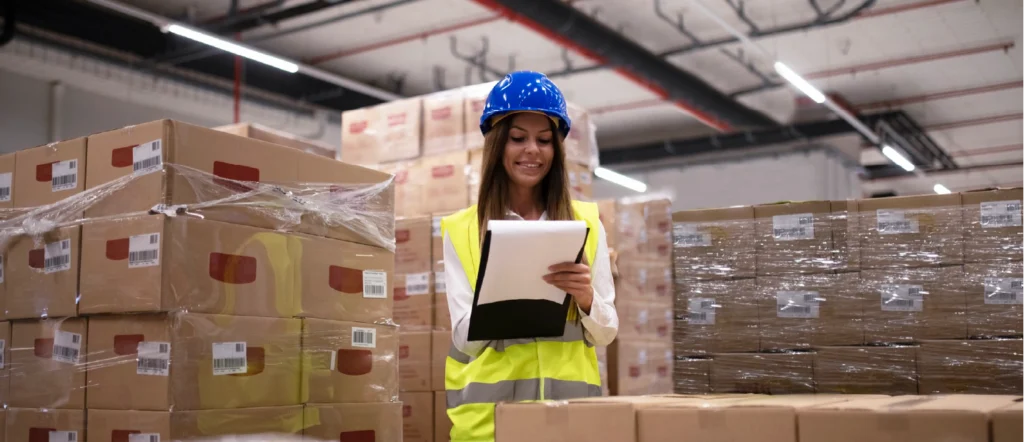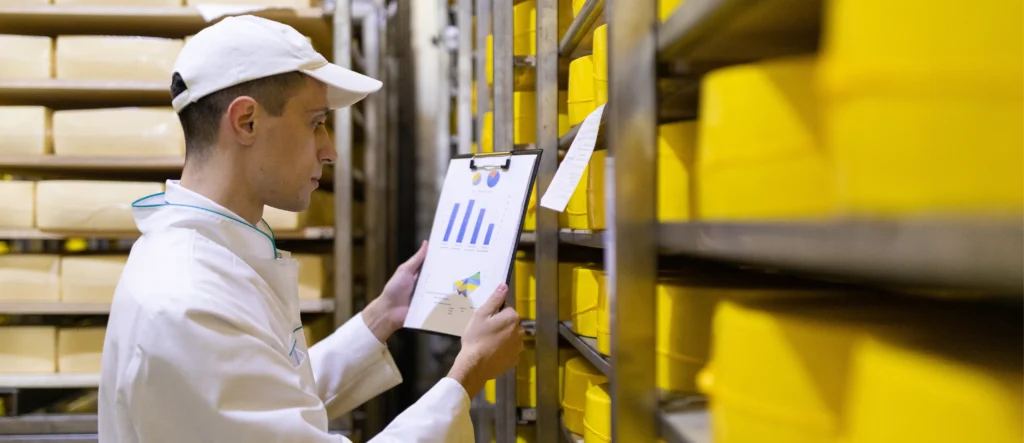In the world of manufacturing, assembly and importing, companies are constantly challenged to orchestrate a series of complex and simultaneous relationships between suppliers, processes and products. In this article, we venture to explore the key logistics roles that are tasked with calculating every movement and fitting every piece in the right place to maintain a smooth and successful operation.
Key positions in logistics operations
Logistics Manager
Importance
A logistics manager is a key figure in any company involved in the production and distribution of goods and services. His role is to plan, coordinate and supervise all activities related to the transportation, storage and distribution of products. In addition, the logistics manager must also ensure that production processes are efficient and cost-effective, and that delivery deadlines are met.
The importance of a logistics manager lies in his or her ability to optimize the company's supply chain, which translates into increased productivity and reduced costs. A good logistics manager must be aware of the latest trends and technologies in the field of logistics and have the ability to apply them effectively in his or her company. In summary, the logistics manager is a key element for the survival and success of any company that depends on the production and distribution of goods.

Objective of the Logistics Manager
The main objective of a logistics manager is to ensure that products and services are delivered on time and in the right condition. This involves planning, coordinating and controlling all activities related to the production, transportation, storage and distribution of products in order to optimize processes and minimize costs.
Functions of the Logistics Manager
The main functions of a logistics manager may vary depending on the company and industry, however, three of the most common functions are described below:
- Planning and coordination: One of the main functions of a logistics manager is to establish the department's objectives and goals, design strategies to meet delivery deadlines and supervise the performance of the teams in charge of production, transportation and storage of products.
- Inventory management: Another important function is inventory management. This involves monitoring the quantity of products held in stock and ensuring that they are available for sale or distribution at the right time. To do this, the logistics manager must take into account factors such as market demand, supplier lead times and warehousing costs.
- Continuous improvement: It is also responsible for ensuring the continuous improvement of supply chain processes and systems. This involves identifying process improvement opportunities, evaluating suppliers, and implementing technologies and information systems to optimize the supply chain. Continuous improvement is essential to maintain the efficiency and effectiveness of the supply chain in the long term.
Some data about the different designations for the position of Logistics Manager and similar positions:
- Logistics Manager: According to LinkedIn, there are more than 25,000 professionals with the title "Logistics Manager" worldwide.
- Logistics Operations Manager: On Glassdoor, you can find more than 500 "Logistics Operations Manager" positions.
- Logistics Director: LinkedIn shows that there are more than 10,000 people with the title "Logistics Director" in their profile.
- Head of Logistics: On Glassdoor, you can find over 1,000 job listings for the position of "Head of Logistics".
- Supply Chain Manager: According to LinkedIn, there are more than 40,000 professionals with the title "Supply Chain Manager."
- Warehouse Manager: According to Glassdoor, more than 5,000 "Warehouse Manager" positions are available.
You might be interested in: https://abclogistica.mx/2023/03/13/importancia-del-servicio-al-cliente-en-las-empresas-de-logistica/
Transportation Manager
Importance
A transportation manager is responsible for planning, coordinating and supervising all activities related to the transportation of goods or products. The importance of a transportation manager lies in his or her ability to ensure that products or goods reach their destination in a timely manner, minimizing costs and maximizing efficiency.
A good transportation manager must have a broad knowledge of the transportation market (including unit types, dimensions and capacities), regulations and laws related to the transportation of goods or products, technologies and tools for route planning, fleet management and monitoring.

Transportation Manager Objective
The main objective of a transportation manager in logistics is to ensure that products are delivered in a timely manner to customers or users, minimizing costs and maximizing efficiency in the supply chain. To achieve this, he or she must coordinate and supervise all activities related to fleet management, routes and transportation schedules.
Another important objective of the transport manager is to ensure the safety of drivers, vehicles and transported cargo.
Functions of the Transportation Manager
The functions of a transportation manager may vary depending on the company and industry, however, three of the most common functions are described below:
- Planning and coordinating transportation routes: One of the main functions is to plan and coordinate transportation routes for the company's products or merchandise. This involves determining the best way to transport products and services, selecting the right vehicles for each type of cargo, establishing delivery schedules, and monitoring the performance of drivers and fleets.
- Fleet management and maintenance: This involves monitoring and evaluating the performance of drivers and vehicles, maintaining maintenance and repair records, and making decisions regarding the renewal or upgrade of fleet vehicles.
- Compliance with rules and regulations: The transportation manager is also responsible for ensuring that the company complies with all rules and regulations related to the transportation of goods or products. This involves knowing and applying safety and environmental regulations, as well as transit and cargo regulations, to avoid fines and penalties. In addition, you must be aware of the latest regulatory updates to adapt the company's processes and operations.
Inventory Control Specialist
Importance
An inventory control specialist is a key professional in a logistics company, as his main function is to maintain an accurate and up-to-date record of all products and materials in the company's inventory. The importance of this specialist lies in the fact that efficient inventory management helps maximize supply chain efficiency, reduce costs and improve customer satisfaction. In addition, it can quickly identify and resolve any problems or discrepancies in inventory, which helps to avoid delivery errors and financial losses.

Objectives of the Inventory Control Specialist
The main objectives of an inventory control specialist in a logistics company are to maintain an accurate and up-to-date record of all products and materials in inventory, ensure that sufficient stock is available to meet customer demand, and minimize excess inventory.
In addition, the inventory control specialist must ensure that inventory is properly labeled, stored and handled, and that occupational health and safety procedures are followed. He or she must also work closely with other departments in the company, such as purchasing and sales, to plan and coordinate product purchases and deliveries.
Inventory Control Specialist Duties
The functions of an inventory control specialist may vary by company and industry, however, three of the main functions are described below:
- Inventory monitoring and recording: You must ensure that an accurate and up-to-date record is kept of all products and materials in the company's inventory, supported by tools such as WMS (Warehouse Management System) or Warehouse/Inventory Control System. This involves monitoring product receipts and issues, identifying and resolving discrepancies and managing returns.
- Demand planning and inventory management: This involves analyzing historical and trend data, collaborating with other departments in the company to coordinate purchasing and product deliveries, and determining optimal inventory levels to ensure product availability and minimize excess inventory.
- Continuous improvement of the inventory management process: The inventory control specialist must also be constantly evaluating and improving the company's inventory management process. This involves identifying and troubleshooting problems in the process, implementing improvements in inventory management procedures, and collaborating with other departments in the company to improve efficiency and reduce costs.
In conclusion, these three key positions within a logistics company are essential to ensure efficient and effective supply chain management. Each of these roles is crucial to the success of the business. Coordination and collaboration between the different departments and employees of the company are fundamental to ensure proper logistics management and, consequently, quality service to customers.





